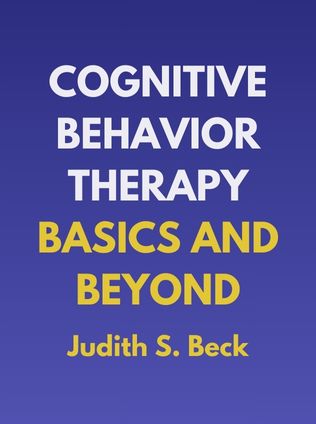
Cognitive Behavior Therapy: Basics and Beyond
Basics and Beyond
By Judith S. Beck
Published 01/1995
About the Author
The author of "Cognitive Behavior Therapy: Basics and Beyond," Dr. Judith S. Beck, is a prominent figure in the field of psychology and cognitive therapy. As the daughter of Dr. Aaron T. Beck, the pioneer of Cognitive Behavior Therapy (CBT), Judith Beck has carried forward the legacy, contributing significantly to the advancement and dissemination of CBT principles. She is a Clinical Professor of Psychology in Psychiatry at the University of Pennsylvania and the President of the Beck Institute for Cognitive Behavior Therapy. Her work primarily focuses on teaching, supervising, and mentoring therapists around the world in CBT.
Main Idea
"Cognitive Behavior Therapy: Basics and Beyond" is a comprehensive guide aimed at both novice and experienced therapists who wish to deepen their understanding and application of Cognitive Behavior Therapy. The book meticulously outlines the foundational principles of CBT, elucidates the therapeutic process, and provides detailed strategies for addressing various psychological disorders. Dr. Beck emphasizes the importance of understanding and changing dysfunctional thought patterns to effect positive behavioral change and improve emotional well-being. The text is structured to be accessible yet thorough, offering readers practical tools and techniques grounded in evidence-based practices.
Table of Contents
- Introduction to Cognitive Behavior Therapy
- The Cognitive Model
- Basic Techniques of Cognitive Behavior Therapy
- Identifying and Modifying Dysfunctional Thoughts
- Core Beliefs and Intermediate Beliefs
- Behavioral Interventions
- Case Conceptualization
- Working with Different Disorders
- Challenges in Cognitive Behavior Therapy
- Conclusion and Future Directions
Introduction to Cognitive Behavior Therapy
Cognitive Behavior Therapy (CBT) is a psychotherapeutic approach that aims to address dysfunctional emotions, behaviors, and thoughts through a goal-oriented, systematic procedure. Unlike some forms of therapy that delve deeply into past experiences, CBT focuses on the present, helping individuals understand the patterns in their thoughts that contribute to their psychological distress. The foundation of CBT is the cognitive model, which posits that our thoughts, feelings, and behaviors are interconnected, and that changing one can lead to changes in the others.
The Cognitive Model
The cognitive model is central to the practice of CBT. It asserts that the way individuals perceive a situation is more closely connected to their reaction than the situation itself. For instance, two people might experience the same event but react in entirely different ways based on their respective thought patterns. Dr. Beck explains,
"The cognitive model states that it is not the event itself that causes distress, but rather how we interpret the event."This interpretation is what CBT aims to modify.
Sign up for FREE and get access to 1,400+ books summaries.
You May Also Like
The Subtle Art of Not Giving a F*ck
A Counterintuitive Approach to Living a Good Life
By Mark MansonRich Dad Poor Dad
What the Rich Teach Their Kids About Money - That the Poor and Middle Class Do Not!
By Robert T. KiyosakiHow To Win Friends and Influence People
The All-Time Classic Manual Of People Skills
By Dale CarnegieFreakonomics
A Rogue Economist Explores the Hidden Side of Everything
By Steven D. Levitt and Stephen J. Dubner



















